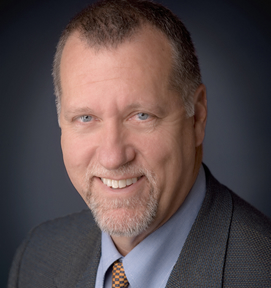“My first exposure to this was when my father was ill and on several different medications and he just didn’t seem like his normal self.”
By James Ward

James Ward
As people age, they often seem to be taking more and more pills each week or each day. Some don’t take any at all, but other people seem to take 10 to 15 different pills each day, and some pills are taken a few times each day.
Are all these necessary? Are some meds overlapping with others? Is there a single doctor who has looked at all the meds to determine if they’re all needed?
My first exposure to this was when my father was ill and on several different medications and he just didn’t seem like his normal self.
When he complained to the doctor and the doctor took a look at all the medications, he realized that different doctors had prescribed overlapping drugs for the same condition and hadn’t told him to stop taking the old ones when they added a new one. Once half of the medications were removed, and the dosage of the others reduced, he felt much better and was back to his old self.
I’m not a doctor, and I’m not giving you medical advice or suggesting that you stop any of your medications, but I do suggest that you periodically have a single doctor look at the array of medications you’re taking to see if some overlap for the same purpose, or if some are simply no longer necessary. What about medicines with anticholinergic properties? These might be prescribed or available as over-the-counter medicine.
Many people think any over-the-counter medicine is harmless, but that may not be the case, and many of these drugs, alone or in combination with others, can cause dementia-like symptoms, or increase a person’s level of dementia.
 Most people don’t live to their 90th birthday, but I had a recent client who was 97 years old. He went to the hospital following a fall from his ladder when he was outside trying to fix a bird feeder before a big storm hit. He went from the hospital to the nursing home and was more and more alert every day after the pain medications were stopped.
Most people don’t live to their 90th birthday, but I had a recent client who was 97 years old. He went to the hospital following a fall from his ladder when he was outside trying to fix a bird feeder before a big storm hit. He went from the hospital to the nursing home and was more and more alert every day after the pain medications were stopped.
When he later transferred to a board and care facility, his mental ability increased rapidly. After a week or so there, he went home and was laughing, joking, playing cards, and having a great time.
When a geriatric physician reviewed his list of medications once he got home, the family realized that he was on far too many drugs, and the dosage was much higher than necessary on some of the drugs. His broken bone healed, and, perhaps more importantly, the family saw a tremendous recovery in his mental abilities as he got further and further away from so many unnecessary medications.
 The wonders of pharmacology have saved and improved millions of lives, but I suggest that once in a while, people have a single doctor review all of their medications to see if some are no longer needed, or are overlapping with other drugs and the result is a higher dosage than necessary for that particular issue that the physician is trying to address with the medication. No, don’t stop all your meds. It may be the medications that are keeping you alive. Just give it some thought and occasionally try to get one single physician to review your overall list of medications and dosages.
The wonders of pharmacology have saved and improved millions of lives, but I suggest that once in a while, people have a single doctor review all of their medications to see if some are no longer needed, or are overlapping with other drugs and the result is a higher dosage than necessary for that particular issue that the physician is trying to address with the medication. No, don’t stop all your meds. It may be the medications that are keeping you alive. Just give it some thought and occasionally try to get one single physician to review your overall list of medications and dosages.
Cleaning up your medication list may also help clear up your mind a bit.






